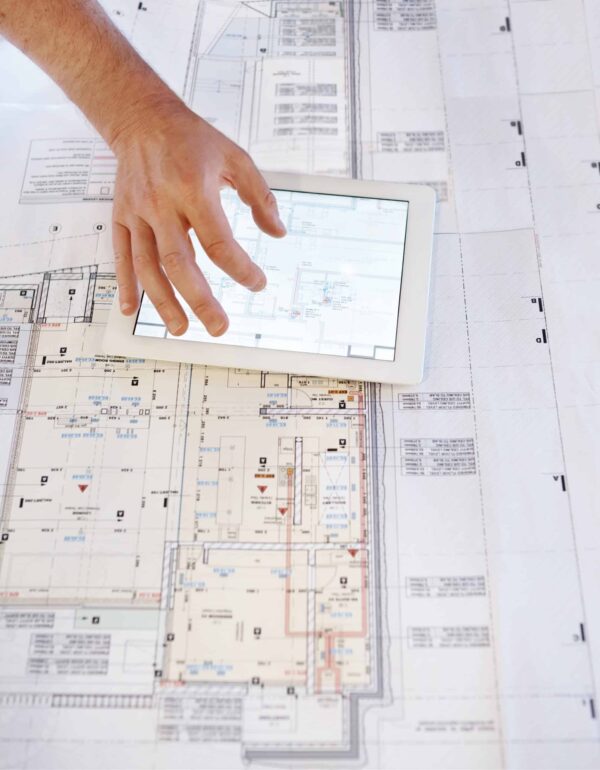Having an understanding of the construction project life cycle is critical because it can help a project manager in maintaining and organising tasks in an efficient and timely manner. If these tasks are not completed at the scheduled time, this can cause problems like programme delays and budget overspend.
Understanding the construction project lifecycle is not only relevant for people involved in construction project management, but this is also helpful for others like building owners, users and contractors, so that everyone is on the same page regarding certain issues, when problems should be resolved, and why tasks are carried out at certain periods of the project life cycle.


Construction projects are complex with a multitude of tasks. Even when the project is already in full swing, new tasks can be added constantly. All of these tasks must be performed and completed during the project’s life cycle.
Broadly, a construction project lifecycle can be divided into four main phases. Each phase is composed of a multitude of tasks, which all need to be completed before moving on to the next phase. A project that properly goes through this process will have a higher chance of success.
Every construction project starts with the initiation phase, wherein the project objective or need is determined. Most project objectives are identified primarily as a business problem or opportunity. A business case or feasibility study is typically prepared at this stage, which will look at all the factors required during the build. This will help determine whether continuing with the project makes sense for the business.
This phase, which is also considered the conceptualisation phase, typically goes through two sub-phases. The first is concept approval, and the second is design approval. For example, if a company owner comes up with the idea of building a new commercial premises, the stakeholders involved will go through the process of approving this concept first. They will study and examine the feasibility study as well as all concerns, questions, and recommendations. At this point, the team will agree whether they will indeed build a commercial premises or scrap the idea altogether.
When a concept is approved, this goes to the second sub-phase, where design companies are requested to bid or propose designs with attached cost estimates and timelines. This gives a more detailed outlook on whether a project is really feasible or not.
Once a building project is approved for construction, a project manager is appointed at this stage to further evaluate the project elements. The project manager will then prepare a Project Initiation Document before moving on to the next stage.

This is the most important phase of a construction project lifecycle, where the entire scope of the project is defined. The planning phase is even deemed more important than the execution phase. While estimated costs and programmes are often identified as early as the initiation phase, this is the time when every single element is detailed.
The project manager will start breaking down all the work involved, identifying the required manpower and material resources, mapping out project timelines, and detailing the budget. This is also the stage where the project manager anticipates any threats or risks that may arise during construction. In simple terms, this is where the following questions are answered:
Part of the planning phase is appointing all the different contractors and third-party companies involved in the building construction. This can take a lot of time and effort, which is why the project manager must be organised and experienced to know which ones are offering reasonable services when it comes to cost and quality versus those who are overpromising to win the bid.
It may all sound easy, but in reality, the person in charge must employ excellent project management techniques to ensure that every small detail is taken into consideration. A slip-up in the planning phase can have programme and financial implications. At the end of the planning stage, there should be a solid project plan with a thoroughly crafted budget and timeline that all the parties involved in the construction can refer to.

This is also known as the implementation phase of a project, when all the tasks outlined in the plan are carried out. Every person who has worked in construction would acknowledge the importance of project management at this stage to ensure that all the required tasks and deliverables are performed on time and on budget.
In an ideal world, everyone performs their tasks according to the plan; however, this is not always the case. There are several factors, whether natural or man-made, that can affect the progress of a project. When this happens, the project manager must be able to adjust and adapt to these changes with the minimum impact possible on the cost and timeline.
In case of any major delays or issues, the project manager should alert stakeholders as early as possible to find solutions that can mitigate further problems. The project plan must also be regularly updated and revised as necessary to reflect the status of the project.

The closing phase is the final stage of the project management life cycle. Once all the tasks are completed and the project is finalised, the last step is to properly close the project. At this point, the project management team must prepare and hand over all the required project documentation, including contracts, final costs, and any relevant paperwork. Project managers must also ensure that all supplier and third-party contracts are resolved and all final payments are processed.
The closing phase is also an opportunity to evaluate the project and provide recommendations on how similar problems can be avoided in future projects. This also applies to new techniques or practices that are utilised and have been proven effective.
Professionals/Consultants typically follow the RIBA 0-7 Plan of Works for construction projects.
